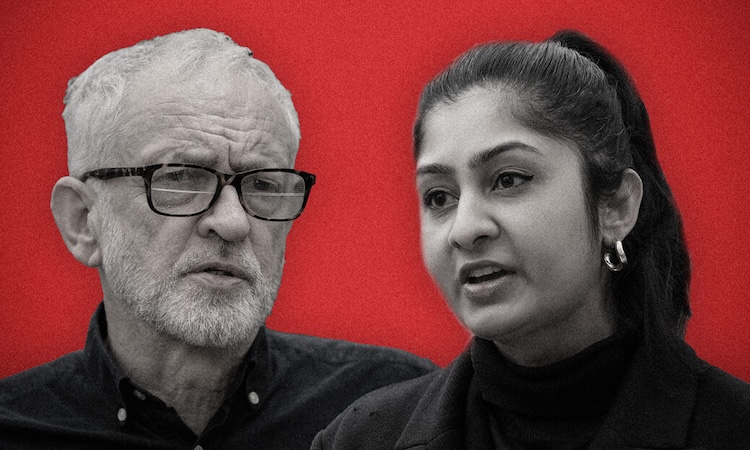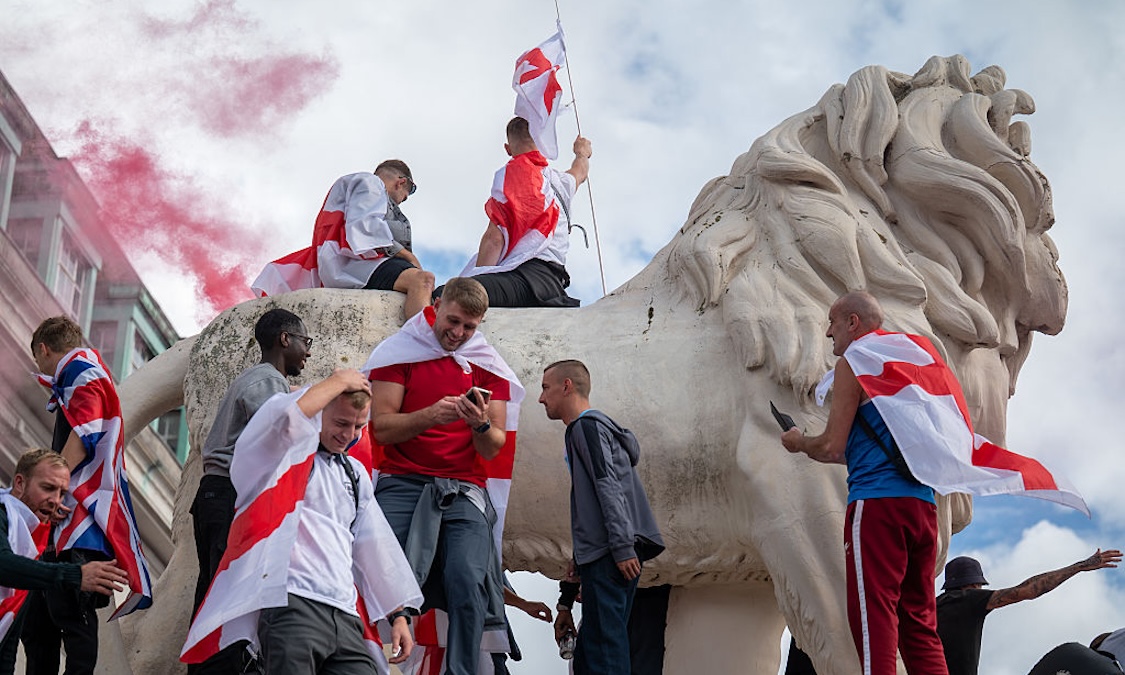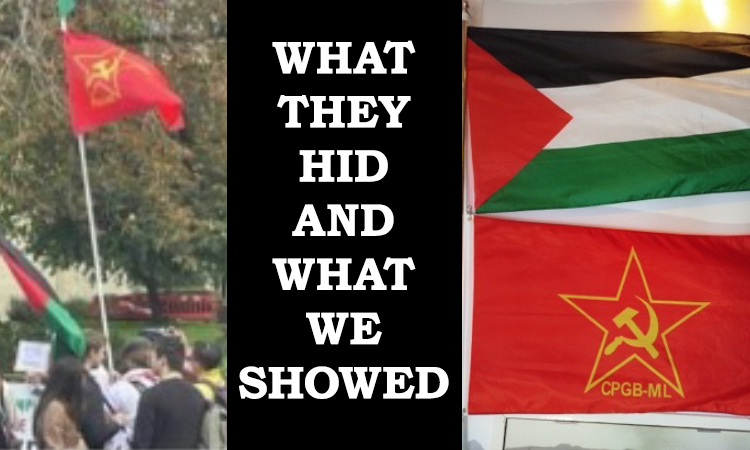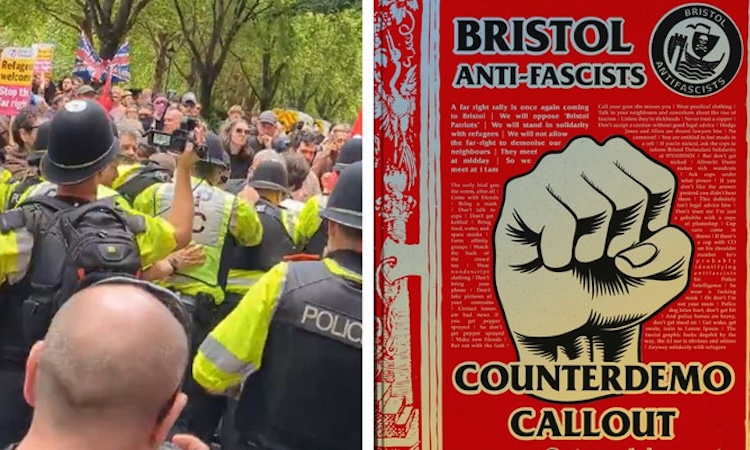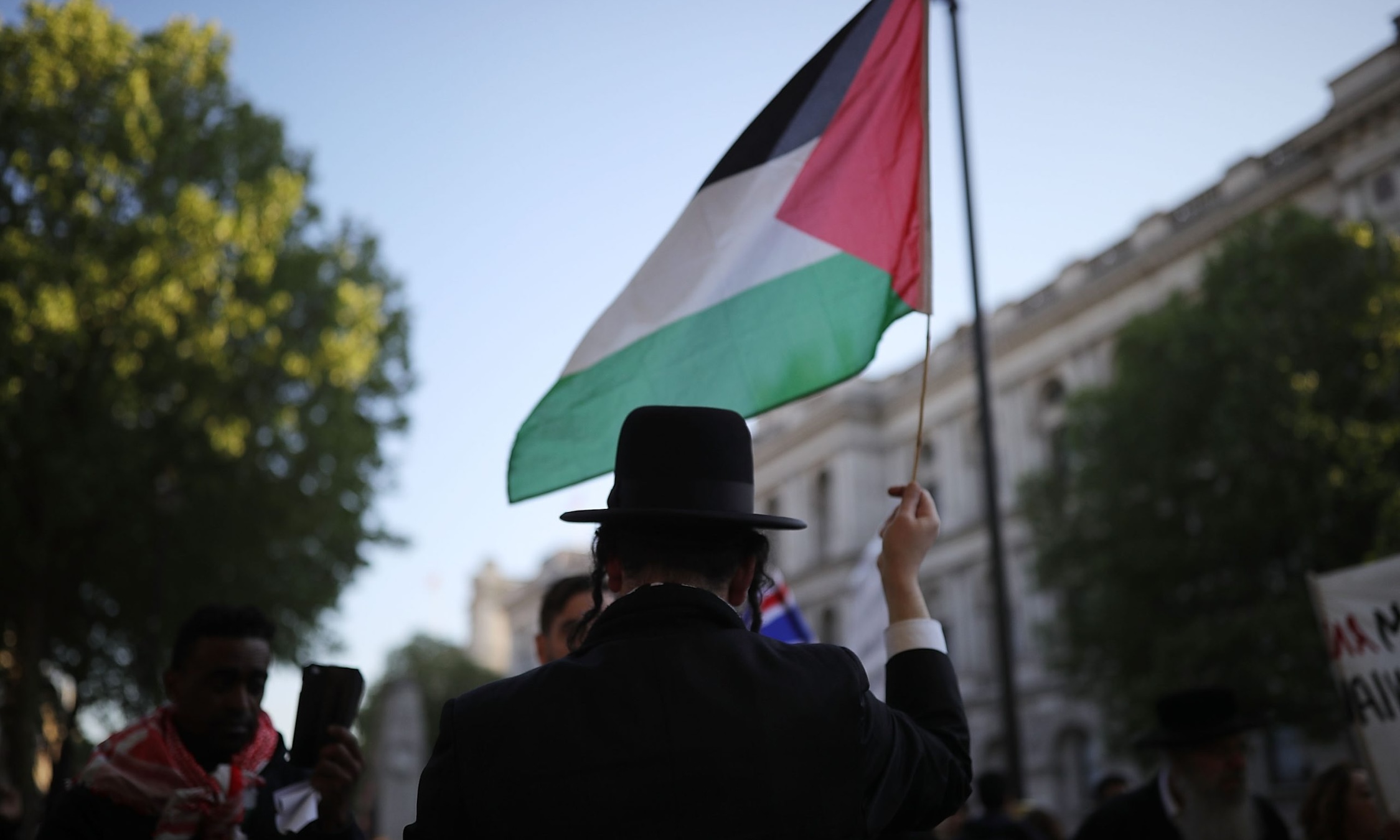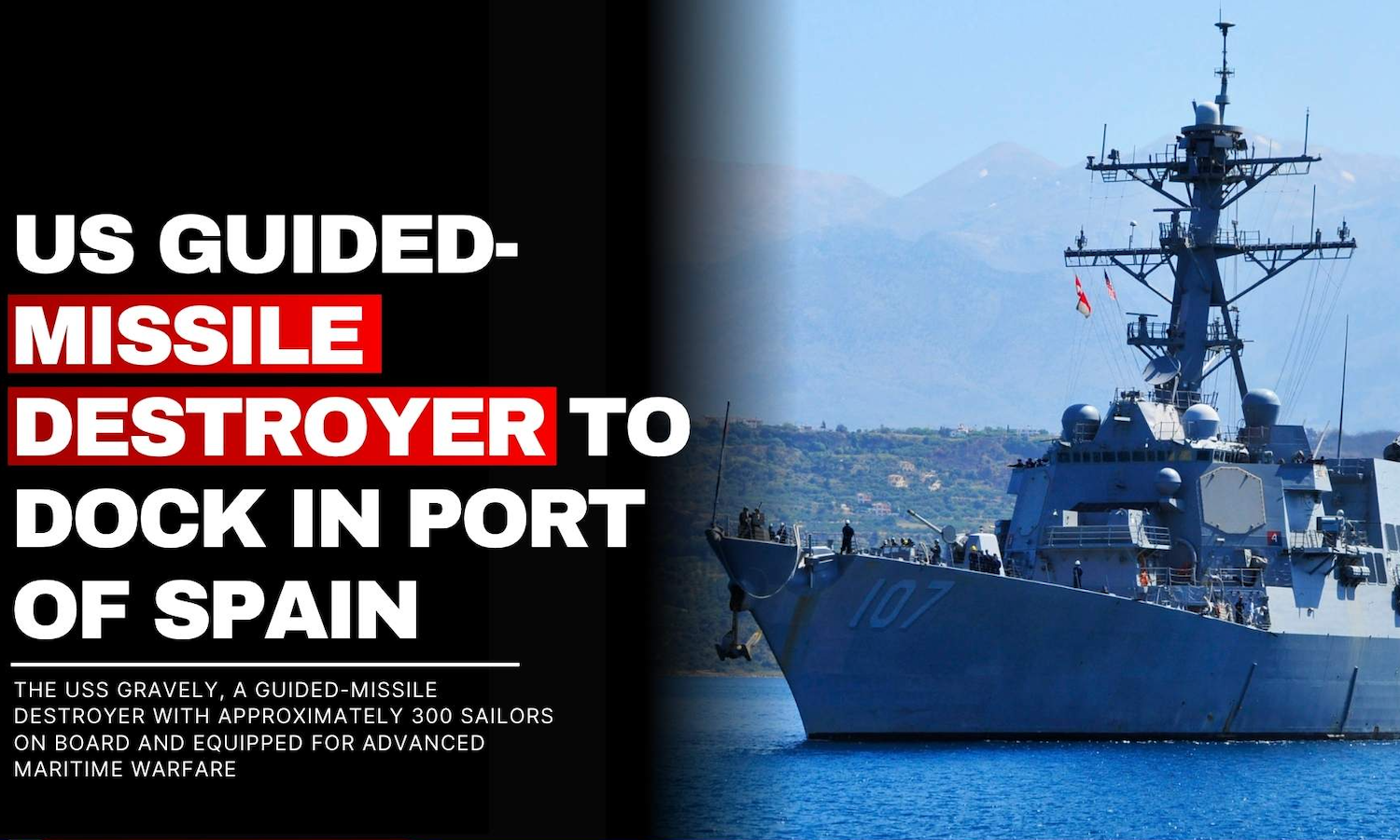Recent newspaper headlines and stories concerning the apparent poisoning of Russian traitor Sergei Skripal and his daughter in Salisbury, and its alleged connection to the death of local resident Dawn Sturgess and the hospitalisation of her partner Charlie Rowley, have caused ever-growing sections of society to question the farcical finger-pointing at Russia in which our media and politicians have been engaging for some months now.
‘Novichok’ poisonings – lies and farce
“I think this story belongs in the ‘ill-informed and wild speculation folder’,” said security minister Ben Wallace, commenting on ‘revelations’ that British police had ‘tracked down’ the perpetrators of the alleged ‘nerve agent attack’ on the Skripals.
His announcement came as the Press Association claimed that a police grass had informed them:
“Investigators believe they have identified the suspected perpetrators of the Novichok attack through CCTV and have cross-checked this with records of people who entered the country around that time. They are sure [the suspects] are Russian.” (Salisbury novichok attack: Police ‘identify several Russian suspects’ in attempted murder of Skripals by Adam Withnall, Independent, 19 July 2018)
The Russian ambassador to Britain, Alexander Yakovenko, responded to this sensational and nonsensical blathering when challenged by the press:
“These are media reports; unfortunately there are no official statements from the British side. I want to hear from Scotland Yard, from the Foreign Office. Many versions (published) in the newspapers are not confirmed at official level,” Yakovenko told journalists in Moscow. (We want to hear from Scotland Yard, not media reports on Skripals’ case – Russian envoy to UK, RT, 19 July 2018)
The fact that it was all blather was clear from Wallace’s comments. It was a climb-down that flummoxed some in the media, particularly those rabidly anti-Russian commentators who genuinely believe that the British police are hot on the trail of a handful of Russian assassins let loose by the Kremlin in this green and pleasant land.
It was also a comment that seemed to depart from earlier bluster, when Wallace had asserted that the Russians “had developed novichok, they had explored assassination programmes in the past, they had motive, form and stated policy”. (Novichok poisonings: UK points the finger at Russia by Steven Morris, Vikram Dodd and Caroline Bannock, The Guardian, 5 July 2018)
Without providing a shred of evidence he had insisted “to a very high assurance” that Russia was to blame, and spoke of “the anger I feel at the Russian state. They chose to use a very, very toxic, highly dangerous weapon,” and should “come and tell us what happened”.
Clearly, when it came to put up or shut up, Wallace thought it best to shut up.
Of course, many thinking workers well understand that media lies are intended only for the masses – to shape their ideas and prejudices; to fill their minds with half-truths, no truths and ‘wild speculation’. The lies that are daily being exposed in Syria, like those that have unravelled since the wars on Iraq and Libya, are merely a part of the psychological grooming of the British public for imperialist war.
Wallace’s climb-down shows that, in this instance, the British state has, at least for now, been forced to rein it in to a certain extent for diplomacy’s sake.
Dawn Sturgess and Charlie Rowley
That Wallace, the police, the British state and the secret services have found themselves at this juncture with nothing meaningful to say on any of the four ‘poisonings’ for which they have been blaming Russia speaks volumes. The stories doing the rounds on the most recent case and its tenuous (indeed non-existent) connections to Russia were even more ludicrous than before.
On 29 June, two residents of the sleepy town of Amesbury in Wiltshire, Dawn Rowley and Charlie Sturgess, are supposed to have come across a bottle of a chemical weapon, the nerve agent novichok, which they took home thinking it to be a bottle of perfume, discarded (as you do with perfume) in the park, or perhaps the meadows near Salisbury Cathedral where romantics are known to hang about.
The premise is that this bottle was abandoned by fleeing Russian agents, who were in such a hurry to leave Wiltshire and get back to the Kremlin that they tossed it amongst the civic hedgerows, where it lay undiscovered, despite hundreds of police out searching for mysterious tubes across Wiltshire these last few months.
Such a discovery is about as likely as finding a bottle of paint cast aside by Constable as he packed up his easel in the bishop’s grounds and headed for the Haunch of Venison pub. The World Socialist Website (WSWS, whose Trotskyism unusually does not extend to cheerleading the imperialist drive to war) noted:
“Even granting the existence of a vessel containing novichok, credulity is stretched to its limits. The last word on the Skripal case had it that a novichok agent was applied to Sergei’s door in a gel form – a ‘gloopy substance’ according to Gordon Corera, another BBC security correspondent. What Sturgess and Rowley are supposed to have done with a bottle containing an unknown ‘gloopy substance’ and why they took it home, given the media hysteria about possible deadly chemicals in the Salisbury area, is not considered.
“Based on the apparent strength of the nerve agent and what some experts are now saying about its ability to remain potent in a container for decades, the fact that any direct contact with a large amount of the substance was not very quickly fatal is remarkable. It was the day after the pair were supposed to have found the bottle that Sturgess and then Rowley fell ill. Did they save opening the bottle till the morning? And if so did Rowley not suspect anything when Sturgess then soon had to be hospitalised?” (Anti-Russia campaign revived in UK with alleged discovery of ‘novichok’ in perfume bottle, 17 July 2018)
Former British ambassador Craig Murray has published a detailed list of questions and criticisms of the government’s narrative of the whole novichok affair. With regard to Sturgess and Rowley he lists the following:
“Why would trained assassins leave crucial evidence lying around in a public place in Salisbury?
“Why would they be conducting any part of the operation with the novichok in a public area in central Salisbury?
“If Rowley and Sturgess had direct contact straight from the container, why did they not both die quickly?
“Why had four months searching of Salisbury and a massive police, security service and military operation not found this container, if Rowley and Sturgess could?” (The holes in the official Skripal story, Craig Murray website, 12 June 2018)
Wiltshire – not just a pretty view
Though renowned for its pretty views, Wiltshire is sadly also home to a plethora of military institutions. The Defence Science and Technology Laboratory (DSTL) at Porton Down is well known, although other institutions receive less coverage.
These include the Defence Chemical Biological Radiological Nuclear (CBRN) Centre at RAF Winterbourne Gunner, Salisbury, originally established in 1926 as the Chemical Warfare School. Its website claims it is “home of the joint CBRN medical faculty. The centre also provides CBRN medical training to all medical officers in the UK armed services as well as specialist medical training to UK and Nato/allied nations.”
Also located nearby is Boscombe Down airbase. The site is currently run, managed and operated by QinetiQ, a private military company created out of the break-up of the Defence Evaluation and Research Agency (Dera) in 2001 by the Ministry of Defence (MoD).
The other part of the former Dera is Porton Down’s DSTL. QinetiQ’s US arm produces a range of military robots. The QinetiQ Talon Hazmat is specially designed for the chemical weapons market and the company boasts it can identify “over 7,500 explosives, precursors and chemicals”. (Nothing about the latest ‘novichok’ attacks adds up by Kenny Coyle, Morning Star, 9 July 2018)
At £4.5m apiece, this is big business, and with an increasing media focus on CBRN threats, real or imagined, this is very good news for the company’s shareholders, who snapped up its Dera parent for a song.
Amesbury also sits close to the Salisbury Plain Training Area, one of the largest military zones in Britain.
In February, just weeks before the Skripal attack, Salisbury Plain hosted Exercise Toxic Dagger, a three-week chemical weapons training exercise involving 40 Royal Marine commandos, Public Health England, the Atomic Weapons Establishment and the Defence Science and Technology Laboratory of Porton Down. (Morning Star, ibid)
Clean-up
Having utterly failed to make any clear political gains from this spectacle, it is possible that moves may now be made to clean up the whole affair in the coming months.
When US President Donald Trump met Russia’s President Vladimir Putin in Helsinki on 16 July, the poisonings were not even discussed, and despite pledges of deepest sympathy and support very little in the way of concrete diplomatic gains have been won as a result of this particular propaganda assault.
Boris Johnson’s attempts in March to paint this summer’s 2018 football World Cup in Russia as the equivalent of the 1936 Olympics held in Nazi Germany fell flat on their face as everyone had a great time and much of the footballing world, including the head of its Fifa governing body, heralded the Russian world cup as the best ever.
Former Scotland player and manager Ally McCoist led the pundits in lavishing praise on fans, grounds, architecture, food and football. Television coverage showed well-kept statues of Lenin and Maxim Gorky, and joyous Mexicans were interviewed emerging from Joseph Stalin’s unused wartime bunker in Saratov, which they decided to use as an unlikely meeting place.
Despite all attempts to paint the Russians black, millions of workers around the country will have witnessed an entirely unexpected phenomenon; not only an England team making the semi-finals of a world cup – but a Siberia that basks in 30 degree heat, a Black Sea coast that sprawls under a blue sky, a snowy Sochi that is adorned with its own subtropical coast, and the inspirational faces of Pushkin and Gogol, Lenin and Gorky that still decorate many a city street, and stand testament to a cultured, energetic, dignified and peace-loving people – and such sights will have provoked much interest and curiosity.
Without a doubt, the prejudices of visiting Englishmen will have been softened by the generosity, warmth and hospitality of the Russian people, and ultimately such sentiments will win out over the lies and war propaganda of our imperialist bourgeoisie.

